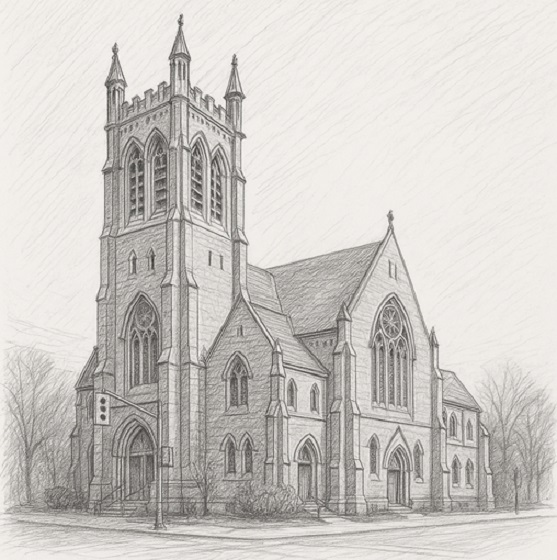Crime
Stopping Crime Debt in its tracks….

For years, Canadian criminals have been robbing their fellow citizens blind.
This is no secret, and with the wave of bust and boom economies, home break-ins and vehicle theft have been a curse to our society. Yet, despite promises of greater funding by federal and provincial governments and increased scrutiny via security cameras and Citizens On Patrol there has been no great reduction in crime rates.
To the everyday citizen, not only is there frustration when someone is struck with theft-personal or business and IF the individual is caught, there is no punishment that seemingly impacts their poor personal choices.
After all, is not theft violating one of the 10 Commandments?
Not only that, but even IF an individual or crime ring IS caught in a sting AND charges are laid by RCMP, the odds are that most or all of the convictions will be thrown out and the perpetrator (s) will be free to commit crimes once again AND escape without penalty. Meanwhile, those whose goods have been stolen are left to pick up the pieces and face increased insurance costs and security issues.
Therein lies the crux of our dilemma.
We have a legal system that is supposed to punish law breakers.
The question is whether or not a thief, or ring of thieves are ever penalized accordingly.
Let me tell you about a real life case that occurred in Central Alberta where a house was repeatedly reported for disturbances at all hours of the night and over a period of a couple of years, police raided the house and took truck loads of stolen items out of the garage. During that time, this home also was used to sell drugs and was involved in a vehicular homicide case.
More than 50 charges were laid to 2 individuals.
Fewer than 5 charges were laid and during their crime spree, they were released and broke bail AND stole vehicles and led police on a chase through another community.
The final value of items stolen was upwards of $500,000 yet there was no financial penalty to the individuals and it can be assumed that after their minimal jail time, they went back to work stealing the fruits of others labors!
This is by no means a solo story, but rather a common tale that has frustrated hard working individuals around Canada.
How can society at large and the court systems put a real stop to criminal activities?
As young people, we are taught not to lie and steal, that human life is sacred and that we are to honour our mother and father. Yet we tolerate games like Grand Theft Auto, where players are supposed to steal vehicles and escape. We tolerate entertainment that glorifies gangsters, pedophiles, rapists, thieves, drug dealers and murderers. In fact, we often even give them Academy Awards for excellence of something.
There is a simple concept that was entrenched in old societies and some native tribes as well that dealt with debt and theft.
Jewish custom demanded that if you stole something, you returned it or recompensed the owner of the item. Tribal beliefs and customs often demanded the same of thieves.
In society today, we have abandoned the concept of personal financial responsibility of theft. Can you imagine the ‘fictional’ couple who stole more than $500,000 of items in a couple of years in addition to their other activities if they had to repay every one of their victims?
Insurance, as we know it, is designed to repay owners for lost goods but it really diverts responsibility for the actions of those who believe it is their right to loot and steal the goods and rewards of others labor.
If you have goods stolen today, you call the police, file a police report and call your insurance company.
No problem, right…wrong.
The problem is that those who forced you to claim a theft, have penalized you in a few ways while they go on their way and fence the items and buy drugs, and other illicit items and services. They may even build a deck or go on a vacation.
As the victim, you are penalized by your insurance company when your rates go up because you claimed the theft. As the victim, you have to accept the fact that the value of your goods is likely more than what you will be paid out, so you lose. If your company does not direct bill, then you pay first, then bill the company. Not only that, but the more theft occurs, the rates across a region or province rise faster and just when you think you have it under control, you may get broken into again and start over!
Not to mention, the loss of security and safety by the homeowners themselves.
There is no winner.
You lose as the victim because the cost of the crime escalates our protections.
The criminal loses because there is NO financial penalty to make them aware that their choices cost people large amounts of money! Morally, there is no lesson when they are caught as the laws will give them the least penalty possible! They learn to use the system and nothing else.

Crime scene
If criminals are never forced to recompense victims, then how will our justice system ever work. It is at best, a perpetual crime inducement factory!
Please listen law makers and government representatives.
Make criminals financially liable for their crimes! If they steal $10,000 worth, then they repay $10,000!
There should be no limit to the costs they have to repay. Theft is a selfish crime, and the consequences of their actions does not stop after they fence the items.
If we look down the line just one generation, and the children of the criminals have seen that their parents have stolen and ‘prospered,’ what will they do? Will they turn their back on the immoral teaching and lead an honest work life? We would hope that at some point that the children would, but if we look at our society the analogy of sexual or spousal abuse does not often stop in the 2nd generation and is viewed as normal and guides each and every decision as long as the victim lives.
What is the real responsibility of our court systems?
Is it to penalize offenders or teach offenders? Or is our justice system functioning as a complicated means to minimize the consequences of our actions?
In the case of household and business theft, I have ONE recommendation for the government of the day. ENACT a law that repays DOLLAR FOR DOLLAR victims of theft by the thieves!
I firmly believe that this will go a long way to stopping crime in our society.
Poor decisions lead to poor outcomes. Crime is Crime. Dishonesty is Dishonesty. There can be no sugar coating. If we use the language of Jewish laws, the transgression is not to be condoned!
It is up to the law makers to make a stand and the governments of our day to truly create a penalty that STOPS instead of DIVERTS and DELAYS.
Business
Quebecers want feds to focus on illegal gun smuggling not gun confiscation

The Canadian Taxpayers Federation released new Leger polling showing that half of Quebecers say the most effective way to reduce gun crime is to crack down on illegal gun smuggling from the United States, not a federal gun ban and confiscation.
“Law enforcement experts say the best way to make Canada safer is to stop illegal gun smuggling and Quebecers say exactly the same thing,” said Nicolas Gagnon, CTF Quebec Director. “It makes no sense to pour hundreds of millions into a confiscation that only takes guns from lawfully licensed gun owners.”
In 2020, the federal government launched its policy to confiscate thousands of so-called “assault-style” firearms from licensed gun owners. Ottawa recently announced a pilot project in Cape Breton to start taking firearms from individual owners.
The Leger poll asked Quebecers what they think is the most effective way to reduce gun crime. Results of the poll show:
- 51 per cent say introducing tougher measures to stop the illegal smuggling of guns into Canada from the United States
- 37 per cent say banning the sale and ownership of many different makes and models of guns along with a government buyback program
- Six per cent say neither of these options
- Seven per cent do not know
The results of the polls arrived as recorded remarks from Public Safety Minister Gary Anandasangaree made headlines in September.
In a leaked audio recording, the minister suggested the confiscation program is being pushed in part because of voters in Quebec, while also expressing doubt that local police services have the resources to enforce it.
Police organizations have long warned Ottawa’s confiscation program is misguided. The RCMP union says it “diverts extremely important personnel, resources, and funding away from addressing the more immediate and growing threat of criminal use of illegal firearms.”
The program was first estimated to cost $200 million. Just providing compensation for the banned guns, not including administrative costs, could cost up to $756 million, according to the Parliamentary Budget Officer.
Premiers of Alberta and Saskatchewan have both publicly said that they would not cooperate with Ottawa’s gun ban. Premier François Legault has stayed silent on this issue.
“Quebecers have been clear: the real problem is illegal gun smuggling, not law-abiding firearms owners,” said Gagnon. “The police have also made it clear the gun confiscation will waste money that could be used to stop criminals from committing gun crimes.
“Legault needs to stand up for Quebec taxpayers and refuse to help implement Ottawa’s costly and ineffective confiscation scheme. The federal government needs to drop this plan and focus its resources on intercepting illegal guns at the border: that’s how you actually make communities safer.”
Crime
France stunned after thieves loot Louvre of Napoleon’s crown jewels

In one of the boldest art crimes in modern French history, a team of masked thieves struck the Louvre Museum in Paris early Sunday, stealing a collection of jewels once belonging to Emperor Napoleon Bonaparte. According to French media, the heist unfolded in just ten minutes — between 9:30 and 9:40 a.m. — as three men disguised as construction workers used a mechanical lift and power tools to access a second-floor balcony of the Apollon Gallery, home to some of France’s most treasured artifacts. Police say the burglars shattered a window, smashed glass display cases, and fled on two motor scooters through the heart of Paris as panicked tourists watched officers flood the museum courtyard. Investigators said the group made off with at least nine pieces, including a necklace, brooch, and tiara tied to Napoleon’s imperial court, though forensic teams are still confirming the exact inventory and value. One damaged crown — believed to have belonged to Napoleon’s wife, Empress Eugénie — was later found discarded near the gallery. The French Interior Ministry called the theft “an intolerable attack on our national heritage,” adding that while the jewels’ market value can be calculated, “their historical significance is beyond measure.”
And here are the first images from the Louvre heist — inside the Apollo Gallery, where it all took place.
A man dressed as a construction worker breaks open a display case.
Museum visitors walk by, unaware that a robbery is unfolding right beside them.
How does something so… https://t.co/whDblfNiYY pic.twitter.com/LQv6jCFqs9
— Muse (@xmuse_) October 19, 2025
Authorities are investigating whether the mechanical lift used in the break-in was part of ongoing renovation work at the site, a potential inside assist that could explain how the thieves breached the museum so efficiently. “The suspects appeared to know exactly where they were going,” one investigator told ABC News, noting that the men wore construction vests and hoods to blend in with workers already on site. One suspect reportedly stood guard outside as the others executed the theft with surgical precision. No injuries were reported and no firearms were used, but the crime has rattled both the museum and the French government.
Jordan Bardella, president of France’s right-wing National Rally party, called the episode “a humiliation for our country” and “proof of the state’s decay.” Writing on X, he said, “The Louvre is a global symbol of our culture. This heist, which allowed thieves to steal the Crown Jewels of France, is an intolerable humiliation for our country. How far will the decay of the state go?” The Louvre — which houses masterpieces such as the “Mona Lisa” and the “Venus de Milo” — attracts nearly nine million visitors a year, making it the most visited museum in the world. Yet the theft comes amid growing turmoil inside the institution. Over the summer, staff staged a mass walkout over overcrowding, understaffing, and what unions called a “collapse in basic security.”
Police now fear the stolen artifacts could be melted down or dismantled to erase their trace, destroying centuries of French history in the process. “The risk is that some of the diamonds could be sold individually, which would make reconstituting the jewels nearly impossible,” a source close to the investigation told Le Parisien. As forensic teams comb through security footage and question contractors, France is once again confronting a painful reality — that even in the heart of Paris, its most sacred treasures are not immune to the growing sense of disorder plaguing the country.
-

 Alberta2 days ago
Alberta2 days agoClick here to help choose Alberta’s new licence plate design
-

 National2 days ago
National2 days agoDemocracy Watch Renews Push for Independent Prosecutor in SNC-Lavalin Case
-

 Business2 days ago
Business2 days agoOver two thirds of Canadians say Ottawa should reduce size of federal bureaucracy
-

 Media2 days ago
Media2 days agoCanada’s top Parliamentary reporters easily manipulated by the PMO’s “anonymous sources”
-

 Agriculture2 days ago
Agriculture2 days agoIs the CFIA a Rogue Agency or Just Taking Orders from a Rogue Federal Government?
-

 espionage2 days ago
espionage2 days ago“Suitcase of Cash” and Secret Meeting Deepen Britain’s Beijing Espionage Crisis
-

 Alberta1 day ago
Alberta1 day agoBusting five myths about the Alberta oil sands
-

 Frontier Centre for Public Policy1 day ago
Frontier Centre for Public Policy1 day agoOttawa Should Think Twice Before Taxing Churches





